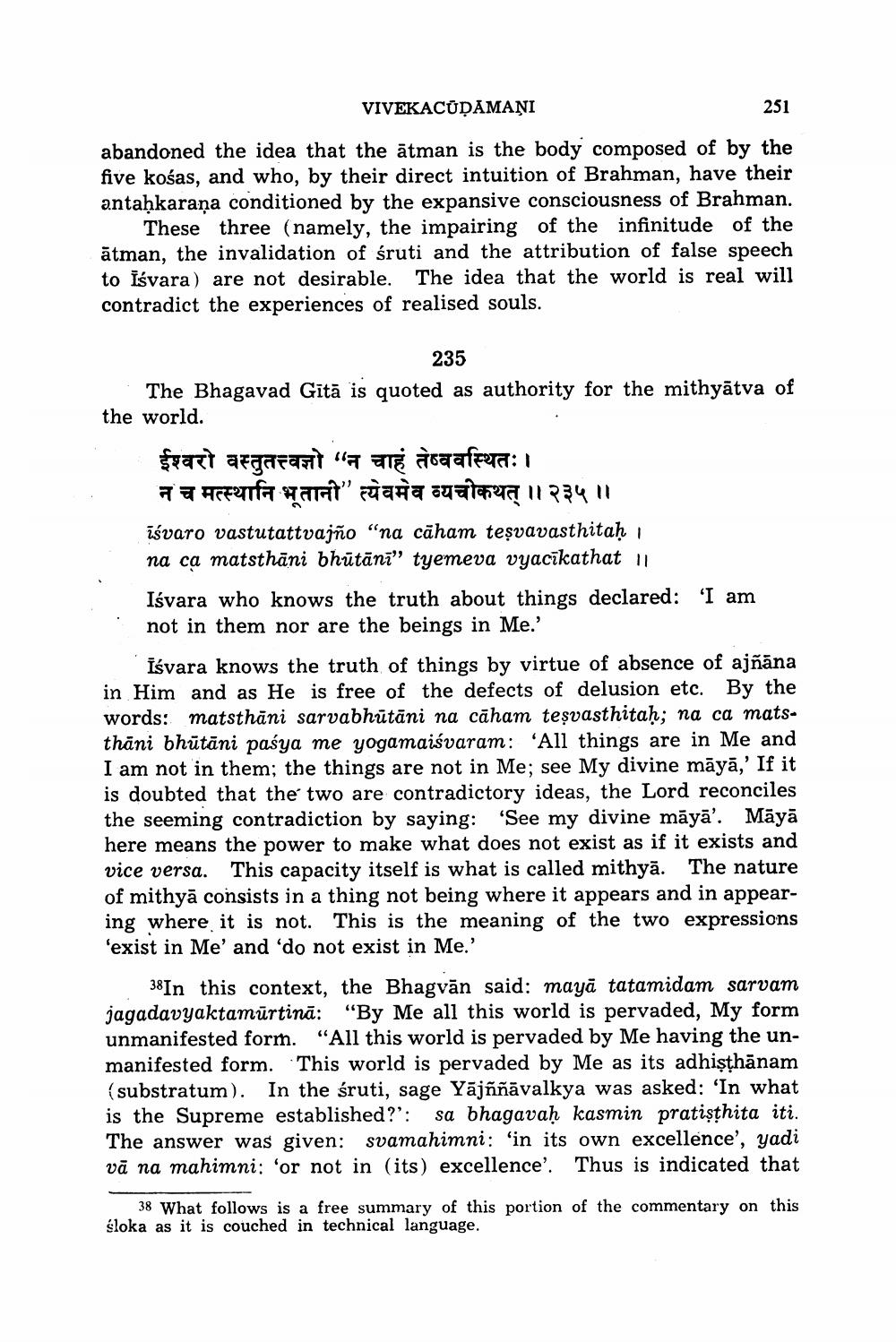________________
VIVEKACŪDAMAŅI
251 abandoned the idea that the ātman is the body composed of by the five kośas, and who, by their direct intuition of Brahman, have their antahkarana conditioned by the expansive consciousness of Brahman.
These three (namely, the impairing of the infinitude of the ātman, the invalidation of śruti and the attribution of false speech to iśvara) are not desirable. The idea that the world is real will contradict the experiences of realised souls.
235 The Bhagavad Gitā is quoted as authority for the mithyātva of the world.
ईश्वरो वस्तुतत्त्वज्ञो "न चाहं तेष्ववस्थितः। न च मत्स्थानि भूतानी" त्येवमेव व्यचीकथत् ॥२३५ ॥ īśvaro vastutattvajño "na cāham teşvavasthitaḥ, na ca matsthāni bhūtānī" tyemeva vyacīkathat 11
Isvara who knows the truth about things declared: 'I am not in them nor are the beings in Me.'
Isvara knows the truth of things by virtue of absence of ajñāna in Him and as He is free of the defects of delusion etc. By the words: matsthāni sarvabhūtāni na cāham teşvasthitaḥ; na ca matsthāni bhūtāni paśya me yogamaiśvaram: 'All things are in Me and I am not in them; the things are not in Me; see My divine māyā,' If it is doubted that the two are contradictory ideas, the Lord reconciles the seeming contradiction by saying: "See my divine māyā'. Māyā here means the power to make what does not exist as if it exists and vice versa. This capacity itself is what is called mithyā. The nature of mithyā consists in a thing not being where it appears and in appearing where it is not. This is the meaning of the two expressions 'exist in Me' and 'do not exist in Me.'
38In this context, the Bhagvān said: mayā tatamidam sarvam jagadavyaktamārtinā: “By Me all this world is pervaded, My form unmanifested form. "All this world is pervaded by Me having the unmanifested form. This world is pervaded by Me as its adhisthānam (substratum). In the śruti, sage Yājññāvalkya was asked: 'In what is the Supreme established?': sa bhagavaḥ kasmin pratisthita iti. The answer was given: svamahimni: 'in its own excellence', yadi vā na mahimni: 'or not in (its) excellence'. Thus is indicated that
38 What follows is a free summary of this portion of the commentary on this śloka as it is couched in technical language.




